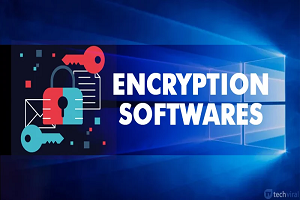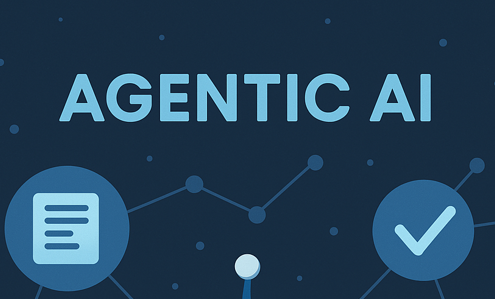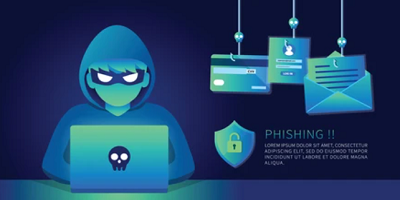Do you want to know about drive encryption? Yes? Then, you are one step ahead of safeguarding the data on your system. In simple words, the hard-drive encryption technology leverages cutting-edge mathematical functions to encrypt the data stored on the system hard drive.
It is a brilliant solution to prevent hackers from accessing hard drive data. That means people, who have the correct password or key, can only access your hard drive. Harness the power of hard-drive encryption to ensure a layer of protection for your hard drive against cybercriminals and online threats.
Nonetheless, it is not a complicated process to encrypt a hard drive. In short, whenever a file is stored on a hard drive, it is encrypted automatically by leveraging a cutting-edge software program. You might think that software-based encryption and hardware-based encryption are more or less the same.
Yes, it may sound almost the same, but software-based encryption, unlike hardware-based encryption, does not leverage the power of hardware when it comes to hard-drive encryption.
When an authorized user reads a file from the hard drive, the drive encryption software decrypts the file automatically while keeping the rest of the files encrypted.
Note that the processes of encryption and decryption are almost the same in all kinds of common applications, such as spreadsheets, word processors, imaging programs, or databases. Moreover, a system integrating with hard-drive encryption operates in the same way as any other computer.
Hard Drive Encryption: How does it work?
A hard drive encryption system leverages the power of AES or Advanced Encryption Standard. Note that AES is a block cipher (a block cipher converts a block of plaintext bits into a block of ciphertext bits, and the size usually remains the same).
Moreover, the encryption process leverages the power of an encryption algorithm and encryption key. That is how the hard drive data is converted into ciphertext through encryption.
When it comes to hard-drive encryption, cipher lengths come as either 128-bit or 256-bit. However, 256-bit encryption is the best between the two, as it ensures more security than 128-bit encryption.
5 Drive Encryption Software Programs
BitLocker
 You might know how it is significant to ensure the safety of hard-drive data. Therefore, you should not ignore the power of a drive encryption software program for your system. It is time to check out five best-in-class drive encryption software programs:
You might know how it is significant to ensure the safety of hard-drive data. Therefore, you should not ignore the power of a drive encryption software program for your system. It is time to check out five best-in-class drive encryption software programs:
You might have heard the name of Bitlocker before. It is a well-known software system dedicated to Windows Operating Systems. Bitlocker leverages the power of the AES encryption algorithm to encrypt hard-drive data with a 128-bit or 256-bit key.
However, Bitlocker does not generate encrypted containers like VeraCrypt and TrueCrypt. When it comes to the Bitlocker encryption software, entire partitions need to be encrypted altogether.
Although some Windows users prefer the work structure of Bitlocker, some others may not be comfortable. It is because if a user leaves their PC unattended and logged in, someone else can easily access all the files.
It is true Windows OS features a distinct encryption system, known as the encrypted file system or EFS to ensure the full encryption of files and folders. Nonetheless, these files and folders are also susceptible to unauthorized access whenever the user leaves the computer logged in. Bitlocker prevents hackers from changing the software leveraged to boot the PC of the user.
BitLocker is compatible with the following operating systems:
- Windows Server 2008 and later
- Windows Vista (Ultimate & Enterprise)
- Windows 7 (Ultimate & Enterprise)
- Windows 8 and 8.1 (Professional & Enterprise)
- Windows 10 (Enterprise & Pro)
VeraCrypt
 Are you familiar with TrueCrypt, which is compatible with Windows 8/7/Vista and later? TrueCrypt is a discontinued freeware, which ensures integrated support for virtual disk images as well as encrypted disks.
Are you familiar with TrueCrypt, which is compatible with Windows 8/7/Vista and later? TrueCrypt is a discontinued freeware, which ensures integrated support for virtual disk images as well as encrypted disks.
Did you know VeraCrypt comes as a fork of TrueCrypt? VeraCrypt is known as the successor of TrueCrypt. In simple words, VeraCrypt comes as an improvement or advanced version of TrueCrypt. That is why VeraCrypt’s functions are almost the same as TrueCrypt.
In short, VeraCrypt leaves no stone unturned to incorporate security into the advanced algorithms used for partitions and system encryption. That is how VeraCrypt becomes resistant to newly-evolved brute-force attacks.
VeraCrypt is one of the advanced open-source tools (free) that can ensure full-disk encryption on Windows PCs. This drive encryption software program is compatible with Windows XP, Vista, 7, 8, and 10. Moreover, VeraCrypt is simple to use. Once you have configured it, you just need to enter the encryption password every time you boot your Windows PC.
Note that VeraCrypt leverages 30 times more iterations when it comes to encrypting partitions and containers as compared to TrueCrypt. Hence, the partition takes a bit of a long time to start up. The same goes for containers to open. However, VeraCrypt does not impact the use of any applications.
VeraCrypt is an open-source drive encryption software program. As a user, you can rest assured about VeraCrypt’s performance, as its code is checked by experts from time to time. However, VeraCrypt is the same as TrueCrypt at the core level. Hence, an inspection of TrueCrypt goes well for VeraCrypt.
FileVault 2
 Are you an Apple user? Then, what could be a best-in-class drive encryption software program in this regard? FileVault 2 is the answer, which started the journey with OSX Lion.
Are you an Apple user? Then, what could be a best-in-class drive encryption software program in this regard? FileVault 2 is the answer, which started the journey with OSX Lion.
If you are a Bitlocker user on a Windows PC, you would get almost the same experience with FileVault 2 on a Mac computer. Note that FileVault 2 is compatible with macOS Lion or later.
FileVault 2 is a Mac-only software program, which leverages the power of an AES-XTC 128-bit algorithm when it comes to ensuring full disk encryption. What about the encryption key for the FileVault 2 drive encryption software? The answer is the login password of the respective user for the system.
FileVault 2, like Bitlocker, does not generate encrypted containers. As a result, whenever a user logs into their Macbook, the entire hard drive’s data gets unencrypted. That means the data can be accessed by anyone if the device is left unattended until it is powered off.
Furthermore, FileVault 2 is not an open-source drive encryption software program just like Bitlocker. As a result, the public cannot scrutinize the code of FileVault 2.
CipherShed
 Note that CipherShed can still be leveraged, but it has not been upgraded since 2016. Moreover, CipherShed is also a fork of TrueCrypt just like VeraCrypt. This drive encryption software program is compatible with old TrueCrypt containers. CipherShed is suitable for Linux, Windows PC, and Mac OSX. Note that the first non-alpha version of CipherShed has already been released.
Note that CipherShed can still be leveraged, but it has not been upgraded since 2016. Moreover, CipherShed is also a fork of TrueCrypt just like VeraCrypt. This drive encryption software program is compatible with old TrueCrypt containers. CipherShed is suitable for Linux, Windows PC, and Mac OSX. Note that the first non-alpha version of CipherShed has already been released.
Although CipherShed and VeraCrypt share many similarities, the development in the former is slower than the latter. The good news is that the errors in TrueCrypt have already been patched. You can leverage CipherShed to generate encrypted containers or to ensure full disk encryption.
Note that CipherShed can be teamed up with TrueCrypt containers, but the latest versions of VeraCrypt cannot be. The reason is being the increased iterations of VeraCrypt for which it is no longer compatible with TrueCrypt containers. However, this feature has made VeraCrypt a more secure option.
LUKS
 When it comes to Linux users, LUKS (Linux Unified Key Setup) comes as a drive encryption software program. Note that LUKS leverages the power of cryptsetup and makes use of dm-crypt when it comes to disk encryption backend.
When it comes to Linux users, LUKS (Linux Unified Key Setup) comes as a drive encryption software program. Note that LUKS leverages the power of cryptsetup and makes use of dm-crypt when it comes to disk encryption backend.
Although LUKS does not perform all the functions as VeraCrypt or other drive encryption software programs, it ensures more flexibility when it comes to using encryption algorithms.
LUKS is not compatible with different operating systems. It works best only for Linux. Are you a Windows user? You can still access LUKS-encrypted disks leveraging LibreCrypt. Note that Linux Unified Key Setup does not feature plausible deniability.
LUKS comes as an open-source version for Linux, which supports various algorithms. Nevertheless, it is not much flexible with non-Linux systems.
Wrapping Up
You are now familiar with various disk encryption software programs for different operating systems. It is time to compare the features of each of the above software programs and choose the best one to keep unauthorized access and cyberattacks at bay for your system.





